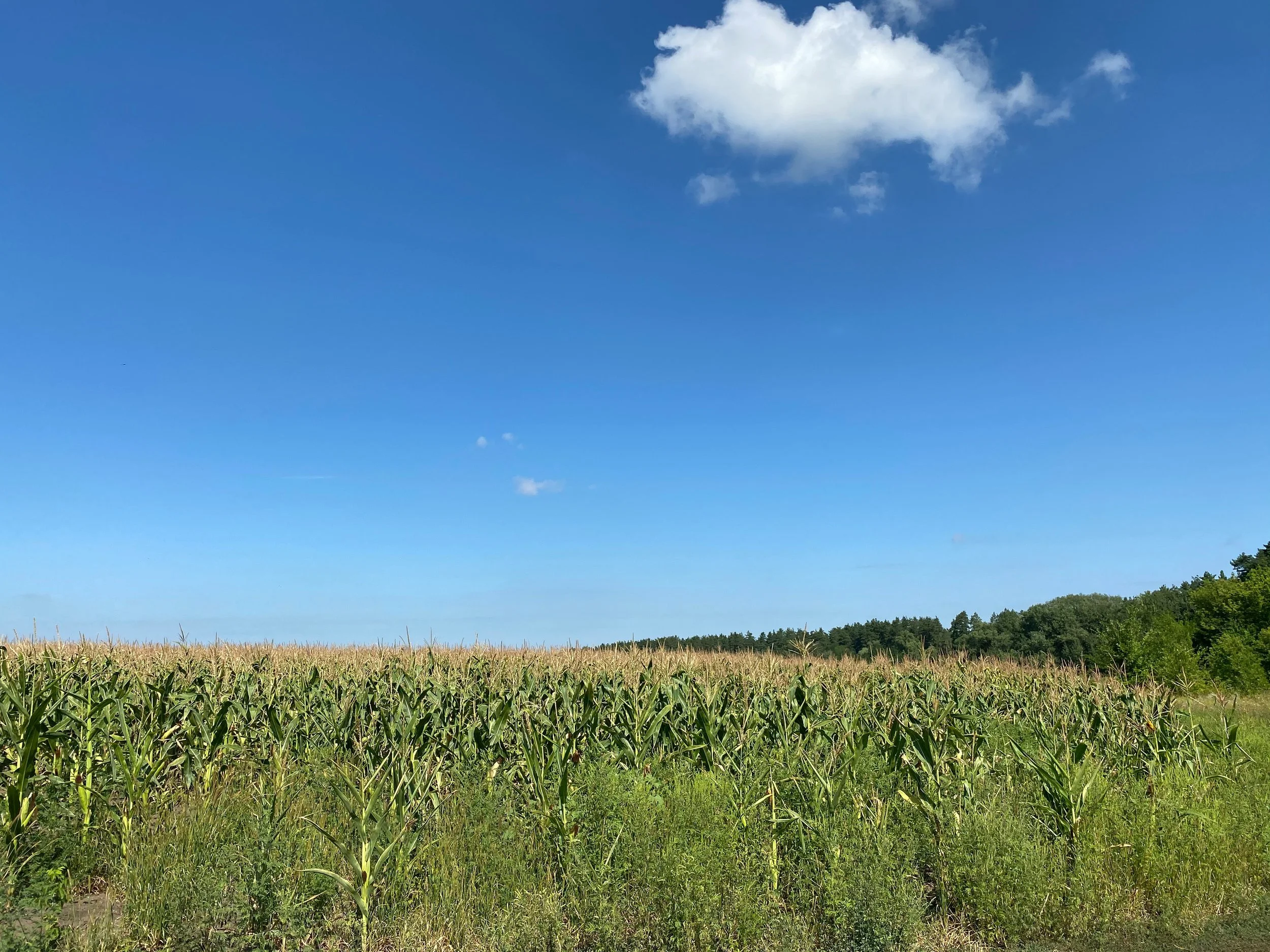"Here We Stand"
A Holy Wisdom Declaration Rooted in Faith and Resistance
At Holy Wisdom Monastery in Madison, a quiet but powerful movement has taken shape among the Sunday Assembly—a progressive, ecumenical worshiping community shaped by Benedictine values. What began as a communal moment of grief and confusion evolved into a bold, consensus-driven declaration of faith, resistance, and clarity. The resulting document, Here We Stand, is both a theological witness and a spiritual call to action in turbulent times.
The Rev. David Couper, a retired Episcopal priest and oblate at Holy Wisdom, helped guide the process. “It started with questions,” he explains. “Is this fascism? Is our democracy under attack? Didn’t Bonhoeffer and Niemöller teach us to act?” What followed was not a rush to react, but a deeply Benedictine act of listening. The community gathered for what David describes as a “grieving session”—a space to lament, reflect, and discern together.
From those initial conversations, a small group of four leaders began shaping a response rooted in the moral imagination of the Christian tradition. They hosted two major listening sessions, inviting over 100 Sunday worshippers into the conversation. “We pursued consensus,” David says. “None of us had ever tried something like this before. But it was a Spirit-filled process—and it energized us.”
The declaration speaks clearly and urgently: Christian Nationalism is a heresy. Environmental degradation is not separate from spiritual harm. Compassion and justice are not optional add-ons—they are core to the way of Jesus.
Drawing from Matthew 25 and the Rule of St. Benedict, the statement centers the vulnerable—whether human or more-than-human neighbors. “We are Matthew 25 Christians,” David shares. “What you do for the least of these, you do for Christ.”
Importantly, Here We Stand seeks not only to define what this community believes but to publicly reclaim what it means to follow Jesus in a time when “Christian” is too often equated with exclusion, violence, and nationalism. “I tend not to call myself a Christian anymore,” David admits. “I say I’m someone trying to follow the way and teachings of Jesus.”
Holy Wisdom’s Benedictine spirituality permeates the document—gentle, firm, rooted in communal discernment. There are no easy answers, but there is courage. Even the monastery's practical choices—locking doors during worship, posting “no weapons” signs—speak to their commitment to radical welcome and mindful safety.
The final paragraph of the statement widens the lens, calling all communities of conscience to join them in resisting injustice:
“We invite all communities of faith and conscience in the United States to join us in speaking up and resisting policies of our government that violate inherent human dignity and inflict suffering on the most vulnerable, including earth’s plants, animals, water, and air.”
David hopes this declaration becomes a template—something faith communities can turn to when evaluating policy and public life. “Does this help or harm people?” he asks. “Because silence is not an option.”
As a former police chief and priest, David has lived through the civil rights movement, the anti-war era, and now this new crisis of democracy. “I’ve seen our country get better,” he says. “But tyranny begins when good people stay silent. That’s what drives me—the silence. And the need to break it.”
In a time of political distortion and spiritual confusion, Here We Stand offers not only a line in the sand, but a path to walk. One rooted in Jesus, grounded in community, and facing outward in love.
📄 Read the full “Here We Stand” declaration at: https://letmylifeteachnow.wordpress.com/2025/03/15/on-this-we-stand/
🔗 Learn more about the ecumenical Benedictine witness of Holy Wisdom Monastery
🕊 Shared with permission by The Episcopal Diocese of Wisconsin – committed to lifting public theology rooted in love, justice, and the Gospel of Christ in our Diocese and beyond.



